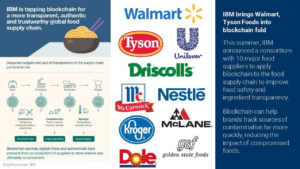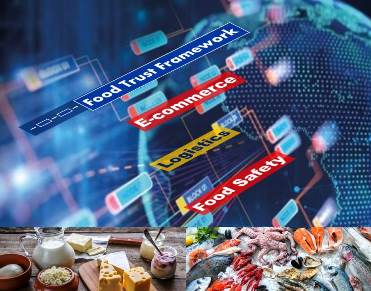 Some of the biggest grocery operators in the world are getting together to set blockchain standards so that products in the food supply chain can be monitored from “farm to fork”.
Some of the biggest grocery operators in the world are getting together to set blockchain standards so that products in the food supply chain can be monitored from “farm to fork”.
More than 1 million products across 50 food categories will eventually become part of the blockchain initiative. Once these large companies adopt blockchain standards and requirements for how you will fit into their construct and transmit data between partners up and down the supply chain, they will resist adding partners that can’t be compliant. Just like a regular chain, a weak link in the chain can make the entire structure fail.
Compliance in this instance means that one can participate in a secure, authenticated manner across all supply chain processes. For instance, if one provides a service that inspects produce in a blockchain, buyers in that blockchain may require that organization somehow will guarantee the quality and freshness of that produce.
That would allow them to alleviate additional inspections and steps further down the supply chain, avoiding delays – possibly adding days to the shelf-life of produce. That’s just a tiny example of how it could be used. The point is, no matter how menial or “traditional” one feels that a company’s role is, one could be forced to make changes to one’s operational structure to participate in a blockchain and avoid to get rejected.
Companies that formed this grocery blockchain initiative over a year ago include Walmart, Nestle SA,Tyson Foods, Unilever NV, Kroger and others. Noticeably absent here is Amazon…perhaps by simple omission in the report. But, rest assured that Amazon is at the forefront of blockchain technologies as well, it won’t be an outlier.
Source: ARMADA Corporate Intelligence
Editorial comments: Identity of farms, packaging and distribution / transportation firms and their financial standing will be essential for the Blockchain concept to work. Fraud prevention and trade credit guarantees will be essential.






















